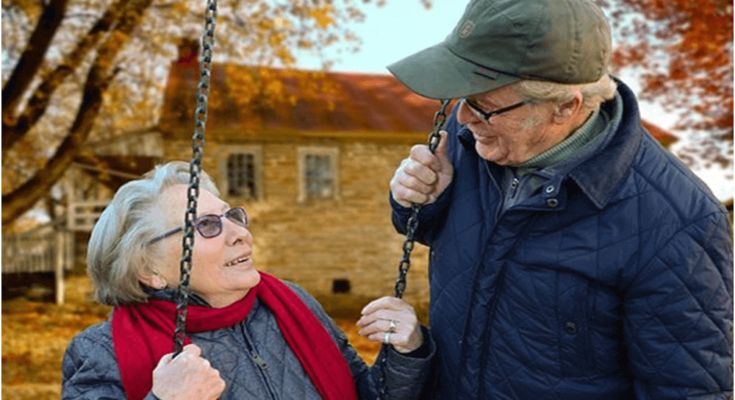Having a chronic illness can be incredibly challenging. But one of the hardest things about living with a severe condition is how it affects your self-esteem and confidence. Many people suffer from urinary incontinence at some point in their lives, usually due to old age or other conditions such as obesity or chronic stress.
However, while it’s perfectly normal to experience some leaking when sneezing, laughing, or lifting heavy objects, those who deal with it regularly may find their self-confidence suffering greatly.
If you’re struggling with confidence because of your incontinence—or any other aspect of your life related to your illness—we understand exactly how you feel.
Here are five ways to build confidence while facing incontinence:
1. Look Good
Most people’s self-esteem is greatly affected by their appearance, so it’s essential to feel good about what you see in the mirror. When feeling down about our appearance, it’s easy to neglect our grooming. However, it’s essential to maintain proper hygiene and keep up with your beauty routine to boost your self-confidence.
When you feel good about how you look, it’s much easier to feel good about yourself—despite any physical ailments you may face. Try to keep up with your grooming routine, and ensure you take care of yourself daily.
Grooming includes washing your hair, shaving, and cleaning your teeth. It’s also essential to wear prevail adult diapers to prevent leaks–which is often a source of embarrassment, especially in public. Taking extra care of yourself will likely make you feel better, no matter your illness. Everyone has bad days, but taking steps to feel as good as you can daily really helps boost your confidence overall.
2. Exercise
Exercising is often the last thing people feel like doing when struggling with an illness. But it can have a positive impact on your self-confidence. When you work out, your body releases endorphins, which make you feel happier and more energetic.
Exercising can also help improve your bladder control. There are special classes and programs designed to help people with incontinence, so research and find out what’s available in your area.
Additionally, exercise also helps to boost your metabolism, which can help you to lose weight if you’re overweight. It’s not an easy experience for people with incontinence, but try to find ways to get moving that don’t increase your risk of leaking.
Exercising regularly can also help you sleep better, making dealing with incontinence easier. If you’re dizzy from a lack of sleep, it can be harder to stay optimistic.
3. Accept yourself for who you are
Accepting your illness and its challenges is one of the best ways to build confidence when dealing with incontinence. One way to do this is to try to clear your head whenever you feel overwhelmed by negative thoughts.
Try to focus on the things you can control, and don’t be too hard on yourself if you slip up now and again. Enjoy the things you love, and don’t let your incontinence get in the way. Whether it’s reading, writing, knitting, or playing video games—find a hobby you love and get involved in.
You might even meet new friends dealing with the same issues as you. Accepting yourself for who you are increases your confidence and self-worth.
4. Practice self-care
Taking care of yourself is crucial to building confidence when dealing with incontinence. Feeling unwell and neglected when you have a chronic illness is easy, but being kind to yourself can go a long way.
Regular self-care breaks can help you stay positive and feel better, even when dealing with a serious condition. This can include taking a bath, reading a book, exercising, watching your favorite TV show, or going out with friends. These are small but important steps to help reduce your risk of incontinence and improve your confidence.
What matters is that you do something that makes you feel relaxed and optimistic while dealing with incontinence. They also help you to avoid feeling neglected if you tend to put yourself last when you’re feeling unwell.
5. Join support groups
Joining a support group relating to your illness or symptoms can help to empower you and give you a new sense of confidence. It can be hard to stay positive when experiencing a particularly bad day. But when you have a community of people who know exactly what you’re going through, it can help you to feel more empowered than ever.
When you’re in a situation where you don’t feel confident, it can be easy to feel like you don’t belong. However, you don’t have to feel alone when surrounded by people who understand what you’re going through.
You can learn to love the person you are—regardless of your illness. You can find solace and strength in knowing that you’re not alone and that others are dealing with the same thing.
Conclusion
When dealing with a chronic illness, it can be easy to forget that you’re a human being. You may feel like you’re just a collection of symptoms and pain, but that’s not true. Building confidence while dealing with incontinence can be incredibly difficult, but it’s possible if you try to stay positive.
When you feel positive, you’re more likely to achieve your goals and feel empowered by your actions. Try to focus on the things you can control, accept your illness, and practice self-care. A support group can also help you build confidence when dealing with incontinence.




